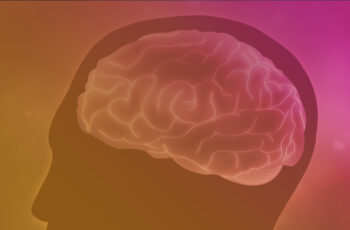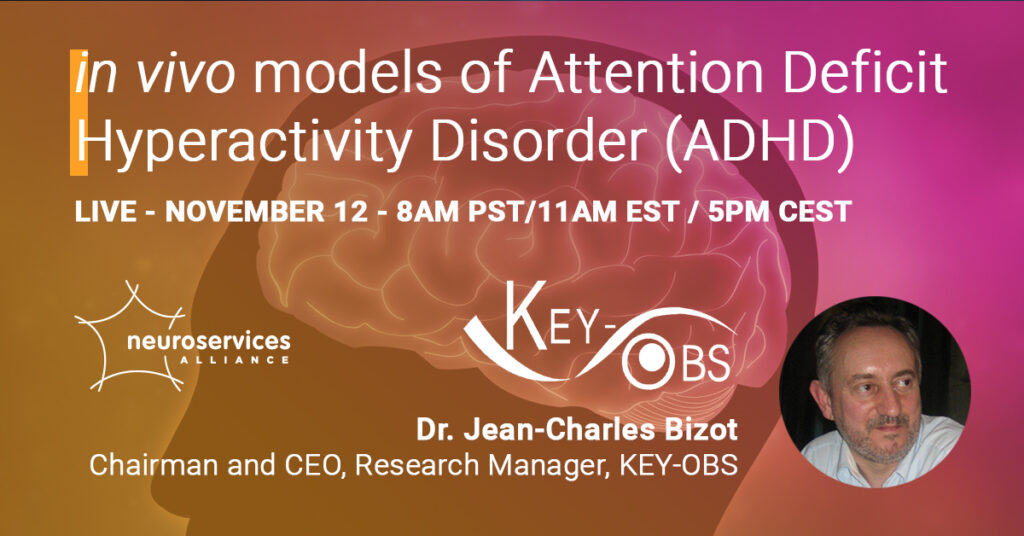
Attention deficit hyperactivity disorder (ADHD) is the most common neuropsychiatric disorder encountered in children and adolescents. It affects about 5% of children. Major symptoms of ADHD are attention problems, hyperactivity and impulsivity.
The most commonly prescribed drugs for ADHD are psychostimulants, including methylphenidate and amphetamine, and atomoxetine, a non-stimulant noradrenaline reuptake inhibitors. However, the need of new compounds with a better efficacy and less undesirable side effects remains a major objective.
This presentation will focus on three preclinical in vivo models allowing to evaluate in rats the effects of compounds on the three main symptoms of ADHD: impulsivity, inattention and hyperactivity.
——-
As a member of Neuroservices-Alliance, KEY-OBS provides in vivo models to evaluate drug efficacy and behavioural tests dedicated to the phenotyping of transgenic mice.
Dr. BIZOT is a behavioral pharmacologist with over 35 years of experience in behavioral and psychopharmacological research. He was the head of the laboratory of psychopharmacology and toxicology of a research center of the French Ministry of Defense for 10 years.
Cofounder, Chairman and Chief Executive Officer and Research Manager of Key-Obs, he has an extensive experience in in-vivo preclinical models of central nervous system diseases and has designed some original tests of behavior in rodents.
He has managed hundreds of preclinical studies in the field of nervous system disorders for pharmaceutical and academic laboratories.
—–
AGENDA
20 min – Presentation
10 min – Live Questions & Answers
The session will be recorded and every registrant will receive a link to access it after the event
